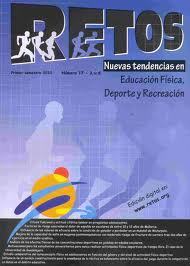The “practical sense” of volleyball: support for the analysis of socio-sport projects
DOI:
https://doi.org/10.47197/retos.v52.101919Keywords:
Socio-sports projects, Sociology of Sport, Methodological path, Volleyball, Pierre BourdieuAbstract
This research seeks to establish a debate on the functioning of socio-sports projects and the discourse engendered by provisions that link sport to the resolution of various social demands. When it comes to volleyball, there are important aspects to consider: restricted access to sports clubs and the existence of public access projects that seek to balance this social balance. The aim was to identify how volleyball has been presented in the proposals of different institutions, in other words, what is the practical meaning of volleyball in Brazilian socio-sports projects, based on the construction of an analysis proposal interpreted in the light of Pierre Bourdieu. In short, this analytical exercise on the subfield of volleyball in the projects listed seems to converge on a regularity of practical sense in the relationship between the interests of the institutions and the sports field. In this research, it was observed that most of the time, decision-making is related to sponsorship, and the visibility of a brand or an agent, indicating that marketing may be one of the factors that mobilizes volleyball in different regions of the country and sometimes contributes to its massification.
Keywords: Socio-sports projects; Sociology of Sport; Social Programs; Volleyball; Pierre Bourdieu.
References
Associação Joaçabense De Voleibol (2021). Bom de Bola, Bom de Escola. Recuperado de: http://www.ajov.com.br/projetos
Associação São Bentense De Voleibol. (2021). Sobre. Recuperado de: https://www.facebook.com/Associa%C3%A7%C3%A3o-S%C3%A3o-Bentense-de-Voleibol-1116402575045243/
Bourdieu, P. (2004). Coisas ditas. São Paulo: Brasiliense.
Bourdieu, P.; Passeron, J. (2014a). A reprodução: elementos para uma teoria do sistema de ensino. 7. ed. Rio de Janei-ro: Vozes.
Bourdieu, P; Passeron, J. (2014b). Os herdeiros: os estudantes e a cultura. Florianópolis, Editora da UFSC.
Bourdieu, P. (2015). Escritos de educação. 16 ed. Petrópolis, Rio de Janeiro: Vozes.
Bourdieu, P. (2019). Questões de sociologia. Petrópolis, Rio de Janeiro: Vozes.
Brasil. (1988). Lei nº 9.615, de 24 de março de 1998. Institui normas sobre desporto e dá outras providências. Recupe-rado de: https://www.planalto.gov.br/ccivil_03/leis/l9615consol.htm
Brasil. (2023). Lei nº 14.597, de 14 de junho de 2023. Lei Geral do Esporte. Recuperado de: https://www.planalto.gov.br/ccivil_03/_Ato2023-2026/2023/Lei/L14597.htm
Camargo, L. P.; Santos, L. J. M.; Silva, O. G. T. (2022). Revisão sobre projetos sociais esportivos no Brasil: atualiza-ção de revisão, metanálise qualitativa e percepção de lacuna de pesquisa. Retos, v. 46.
https://doi.org/10.47197/retos.v46.91091
Canales-Lacruz, I.; Cao, A. R. (2018). A Função Socializadora do Desporto nos Manifestos Eleitorais dos Partidos Políticos Espanhóis: Eleições Gerais 2011. Retos, v. 33
https://doi.org/10.47197/retos.v0i33.57711
Datafolha. (2015). Brasileiros tornam-se sedentários antes dos 34 anos. Folha de São Paulo, 22 jun. 2015. Recuperado de: https://www1.folha.uol.com.br/paywall/login.shtml?https://www1.folha.uol.com.br/cotidiano/2015/06/1646253-brasileiros-tornam-se-sedentarios-antes-dos-34-anos-aponta-pesquisa.shtml
Escola De Vôlei Bernardinho. (2021). Social. Recuperado de: https://www.escoladevoleibernardinho.com.br/social
Esporte Clube Futuro. (2021). Vôlei Futuro. Recuperado de: https://www.voleifuturo.com.br/sobre
Godoy, L. (2013). O Sistema Nacional de Esporte no Brasil: revelações e possíveis delineamentos. [Tese de doutorado]. Uni-versidade Federal do Paraná, Curitiba. Recuperado de: http://www.pgedf.ufpr.br/downloads/TESES/2013/TESE%20Leticia%20Godoy.pdf
Instituto Maurício De Sousa. (2021). Projeto Vôlei Mania. Recuperado de: http://www.institutomauriciodesousa.org.br/fazendo-a-diferenca/projetos-e-programas/projeto-volei-mania/
Marchi Jr, W. “Sacando” o Voleibol. São Paulo: Hucitec; Ijuí, Rio Grande do Sul: Unijuí, 2004.
Oliveira, A F. S.; Mussino, A.; Da Costa, L. P.; Nascimento, R. C. (Org.). (2016). Diagnóstico Nacional do Esporte (DIESPORTE). Caderno 2. Ministério do Esporte. Recuperado de: https://edisciplinas.usp.br/pluginfile.php/3322270/mod_resource/content/1/Diesporte%20Minist%C3%A9rio%20do%20Esporte%202015%202.pdf
Projeto Vôlei Cidadão. (2021). Sobre o projeto. Recuperado de: https://www.facebook.com/Projeto-V%C3%B4lei-Cidad%C3%A3o-865465606901044/
Projeto Voleibol De Mauá. (2021). Projetos. Recuperado de: http://www.voleimaua.org.br/historico/projetos/
Rivera, A. S. P.; Brito, M. J. (2015). A pesquisa como prática social: um estudo sob a perspectiva Bourdieusiana. Revis-ta Organizações e Sociedade, v. 22, n. 75 https://doi.org/10.1590/1984-9230755
Sada Cruzeiro (2021). História. Recuperado de: https://www.sadacruzeiro.com.br/?page_id=65
UNIBR. (2019). Projeto Três Toques atende crianças através do vôlei. Recuperado de: https://unibrbotucatu.com.br/projeto-tres-toques-atende-criancas-atraves-do-volei/
UNIJUÍ. (2015). Projeto Ijuí Pró-Vôlei estimula crianças por meio do esporte. Recuperado de: https://www.unijui.edu.br/comunica/cursos/164-presencial/educacao-fisica-bacharelado/21599-projeto-ijui-pro-volei-estimula-criancas-por-meio-do-esporte
UNINTER. (2019). Quantos sonhos cabem na quadra de uma escola? Recuperado de: https://www.uninter.com/noticias/quantos-sonhos-cabem-na-quadra-de-uma-escola
VivaVôlei. (2021). Descrição do programa. Recuperado de: https://vivavolei.cbv.com.br/o-programa/descricao-do-programa
Vôlei Renata. (2021). Vôlei Renata: mais de uma década de sucesso. Recuperado de: https://www.voleirenata.com.br/projeto/historia
Downloads
Published
How to Cite
Issue
Section
License
Copyright (c) 2023 Retos

This work is licensed under a Creative Commons Attribution-NonCommercial-NoDerivatives 4.0 International License.
Authors who publish with this journal agree to the following terms:
- Authors retain copyright and ensure the magazine the right to be the first publication of the work as licensed under a Creative Commons Attribution License that allows others to share the work with an acknowledgment of authorship of the work and the initial publication in this magazine.
- Authors can establish separate additional agreements for non-exclusive distribution of the version of the work published in the journal (eg, to an institutional repository or publish it in a book), with an acknowledgment of its initial publication in this journal.
- Is allowed and authors are encouraged to disseminate their work electronically (eg, in institutional repositories or on their own website) prior to and during the submission process, as it can lead to productive exchanges, as well as to a subpoena more Early and more of published work (See The Effect of Open Access) (in English).
This journal provides immediate open access to its content (BOAI, http://legacy.earlham.edu/~peters/fos/boaifaq.htm#openaccess) on the principle that making research freely available to the public supports a greater global exchange of knowledge. The authors may download the papers from the journal website, or will be provided with the PDF version of the article via e-mail.


